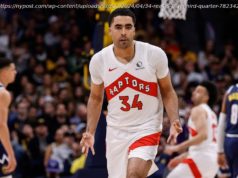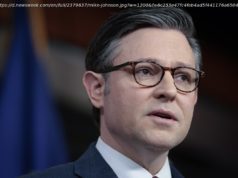Scarcity remains the main tenet of the president’s efforts: Macron has held just six press conferences since he took office May 14, always with strict limits
US President Donald Trump tweets five times a day and regularly gives extended interviews. Since Emmanuel Macron became president of France last month, voters have barely heard from him. Macron has had one short conversation with a newspaper, left tweeting to his communications team and avoided direct contact with the traditional media. The glimpses the French public has had of its new leader have largely been confined to set piece events with foreign dignitaries, tightly controlled speeches and made-for-Facebook video clips, such as his snub to the US president at a Nato summit in Brussels. Pollsters say the approach is set to give him a majority in the National Assembly. The question is whether it will keep voters onside once he gets down to running the country. “Rarity will be difficult to maintain in the age of social media, ” said Philippe Moreau Chevrolet, a communications consultant and professor at the Sciences Po institute in Paris. “It has worked very well during this very particular period. The risk is that it won’ t work for governing. Macron himself has proved one thing – the electorate is very volatile.” While the styles of the US and French presidents are as different as their ages, their politics and their backgrounds, both have scorned conventional wisdom on political communication after victorious campaigns that were widely dismissed at the outset. In Macron’s case, the strategy hinges on rationing his public appearances to add weight to his words on the rare occasions that he does speak. A survey by OpinionWay released Thursday projected that approach will see the president’s party win a majority of at least 300 in the 577-seat legislature after the run-off vote this weekend. But his ways have alienated one group that his predecessors worked hard to keep on side: the French media. Within hours of his inauguration, Macron’s team raised hackles by trying to cherry-pick the journalists who would accompany him on a visit to troops in Mali. The labour ministry has launched a legal investigation into a leak. And last week Justice Minister Francois Bayrou tried to bully news organisations into ignoring his possible misuse of European Parliament funds. “Does the new executive have a problem with the press?” Liberation, Agence France-Presse, BFM TV and dozens of other media asked in a June 13 opinion piece that listed a variety of run-ins with the government. When it comes to freedom of information, they “opt to apply pressure, take legal action and question motives”. Macron’s approach is in stark contrast to the last two residents of the Elysee Palace. Francois Hollande talked at length to select journalists every week, resulting in a series of books stuffed with embarrassing quotes. Nicolas Sarkozy’s hyper approach led to media blitzes interspersed with periods of fatigue. The new president’s strategy is based on techniques devised by Jacques Pilhan, a Communist poker player and communication guru who worked for Francois Mitterrand, the Socialist who dominated French politics in the 1980s and was nicknamed “The Sphinx” for his long periods of public silence. Pilhan’s central idea was that a leader must remain above the political fray. In the French lexicon, that’s become known as the Jupiter approach – the president is like the king of the gods who fires lightning bolts down to Earth, impressing voters with carefully crafted images and just a few words of wisdom. “It is imperative to take great care with the slightest public appearance, ” according to, a book on Pilhan written by Francois Bazin in 2009. “The president must appear alone and majestic in short moments designed with precision.” Pilhan left no written account of his ideas, so Bazin’s book has been the main source for Ismael Emelien, the 30-year-old aide charged with applying that approach in the era of social media and the smartphone. Emelien, like Macron a graduate of the elite Sciences Po institute in Paris, has never spoken on the record. His problem, in Moreau Chevrolet’s view, is that the French want their president to embody a powerful and proud nation just like Louis XIV and Charles de Gaulle did. But they also want their leader to be modern, approachable and down-to-earth like Canada’s Justin Trudeau or former US President Barack Obama. “The two things are almost impossible to reconcile, ” Moreau Chevrolet said. In one vignette that displayed Macron’s common touch, the president showed up at the switchboard of the Elysee Palace to answer the phone – and transmitted the footage via Facebook and Twitter. Yet scarcity remains the main tenet of the president’s efforts. Macron has held just six press conferences since he took office May 14, always with strict limits. He took just three questions from reporters in Rabat Thursday night. In his only interview, with the, he explained how carefully he prepares episodes like his first meeting with Trump May 25, when images of his crunching handshake with the US leader went viral. “I don’ t leave anything to chance, ” Macron said. “That’s how you get respect.”






